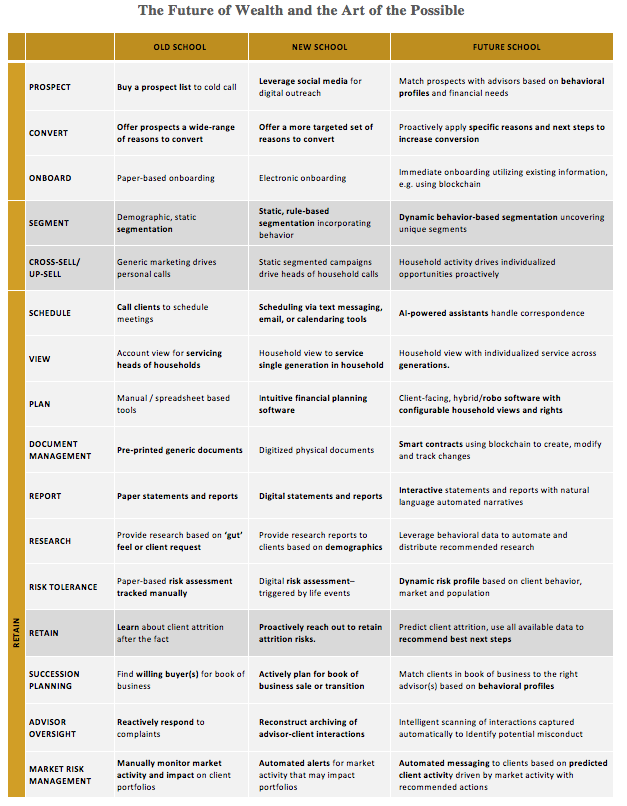Integrated Programs: Preparing For The Future
Fueled by employer incentives, multichannel experiences such as “lunch and learn” financial security seminars and online decision support tools are now offered alongside of health programs such as smoking cessation, weight management and physical fitness/training. Reflective of the financial burden of student debt on employees, a quarter of employers’ plans to offer student loan counseling or repayment assistance.
A growing percentage of companies are expanding their well-being programs to include financial security, up to 84 percent this year from 76 percent in last year.
Tailoring whealthcare programs for households represents a strategic opportunity for forward thinking advisory: embedding daily physical and financial activity with life event tracking into personalized journeys fuels augmented intelligence that can help drive better engagement and decision-making to improve whealth.
Best Interests Of Seniors
Financial abuse of seniors is estimated at between $3 billion to almost $40 billion annually. Whealthcare can contribute to the protection of at-risk seniors by addressing and monitoring issues such as cognitive impairment in a holistic, integrated financial and physical health plan.
SIFMA remains at the forefront of promoting best interests of firms and their senior clients through events, partnerships and promulgation of industry trends such as whealthcare.
Enabling the next generation of advisors to deliver on these five major trends implies investment in new capabilities: the “Future School” of financial advisors’ customer engagement platforms. Agility is a new and critical factor in enabling advisors to apply the technological advances to personalize their client impact, while maintaining competitive efficiency and regulatory compliance.









